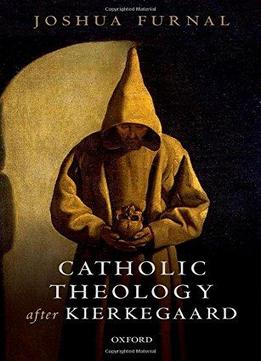
Catholic Theology After Kierkegaard
by Joshua Furnal /
2016 / English / PDF
1.3 MB Download
Although he is not always recognized as such, Soren Kierkegaard has been an important ally for Catholic theologians in the early twentieth century. Moreover, understanding this relationship and its origins offers valuable resources and insights to contemporary Catholic theology. Of course, there are some negative preconceptions to overcome. Historically, some Catholic readers have been suspicious of Kierkegaard, viewing him as an irrational Protestant irreconcilably at odds with Catholic thought. Nevertheless, the favorable mention of Kierkegaard in John Paul II's Fides et Ratio is an indication that Kierkegaard's writings are not so easily dismissed.
Catholic Theology after Kierkegaard investigates the writings of emblematic Catholic thinkers in the twentieth century to assess their substantial engagement with Kierkegaard's writings. Joshua Furnal argues that Kierkegaard's writings have stimulated reform and renewal in twentieth-century Catholic theology, and should continue to do so today. To demonstrate Kierkegaard's relevance in pre-conciliar Catholic theology, Furnal examines the wider evidence of a Catholic reception of Kierkegaard in the early twentieth century–looking specifically at influential figures like Theodor Haecker, Romano Guardini, Erich Przywara, and other Roman Catholic thinkers that are typically associated with the ressourcement movement. In particular, Furnal focuses upon the writings of Henri de Lubac, Hans Urs von Balthasar, and the Italian Thomist, Cornelio Fabro as representative entry points.











